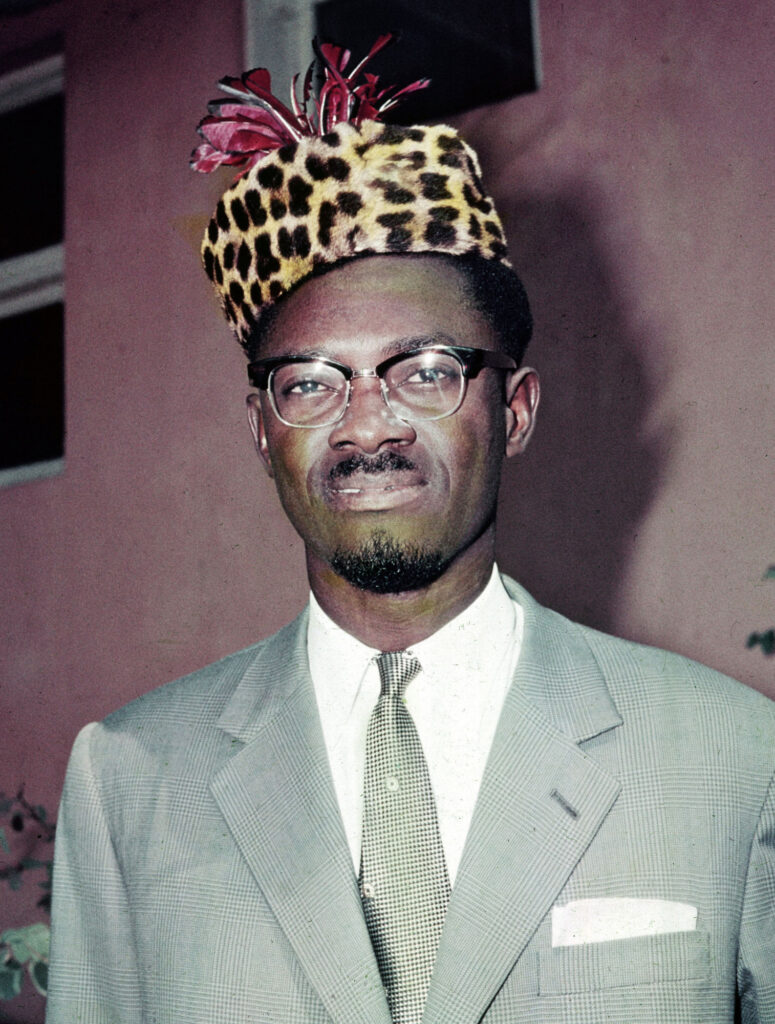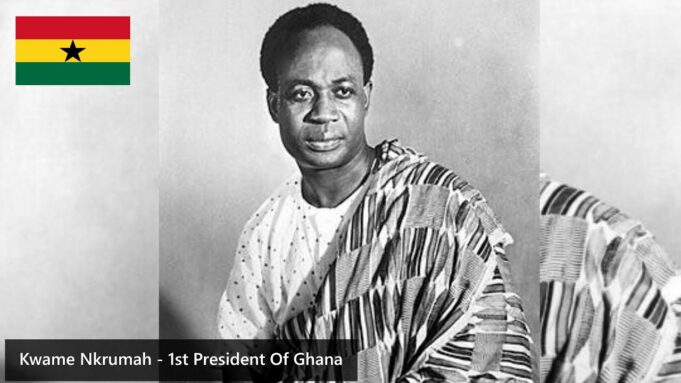The only remains of murdered Congolese leader Patrice Lumumba—a gold-capped tooth in a blue box—was handed over to his family during a ceremony in Brussels, noted the German international newscaster. This symbolic handover of the first democratically elected leader of the now Democratic Republic of Congo, and recent visit by Belgium’s King Phillippe to the minerally rich country appeared more like public relations than any sincere move toward atonement and reconciliation for nearly 100 years of past thievery and atrocities committed against the Congolese population.

A casket containing the tooth is being transported back to the Congo, where it’ll be officially laid to rest at a memorial site noted, the German international media outlet, Deutsche Welle. “Congo will then observe three days of ‘national mourning’ from June 27 to 30, its 62nd anniversary of independence, to mark the burial ceremony,” reported Deutsche Welle.
Ousted by a Western-backed coup three months after he took office, Lumumba was abducted, tortured and assassinated in 1961 at the age of 35. His body was then dug up, dismembered, and dissolved in acid by Belgian officers, one of whom said he pocketed a tooth as a “trophy.”
The existence of Lumumba’s tooth came to light in a 1999 interview with Gerard Soete, a former Belgian police commissioner in Congo, who admitted to disinterring and cutting up Lumumba’s corpse before he dissolved it in acid. Soete later told Ludo de Witte, who wrote a book about Lumumba’s assassination, that he had taken the tooth “as a kind of trophy,” continued DW.
Lumumba first came to prominence after attending the 1958 All African People’s Conference in Accra, Ghana. The West African country gained independence in 1957. “It had been ‘a political and personal epiphany,’ ” noted Susan Williams in her 2021 book, “White Malice: The CIA and the Covert Recolonization of Africa.”
Lumumba’s transformation was the result of his exposure to the vision of Pan-Africanist leaders, Prime Minister Kwame Nkrumah, who became a close confident and mentor. Dr. Frantz Fanon, representing Algeria, who led a delegation of the National Liberation Front (FLN) which at the time was “fighting a bitter war for freedom in Algeria against its French colonizers,” also influenced Lumumba. Fanon introduced the conference to the idea of armed struggle, which it adopted.
According to Williams, Nkrumah’s influence on Lumumba was such that the Ghanian leader recorded a 1959 message from Lumumba which stated, “May I please ask the Prime Minister to give me the necessary guide in respect of the plan to follow in our struggle?” Lumumba also said, Nkrumah’s “experience means a lot to us.” Lumumba also requested copies of Nkrumah’s political speeches for publication in the Congo.

On Jan. 17, 1961, the democratically elected prime minister of the Republic of the Congo, Patrice Lumumba, was executed with the assistance of the governments of Belgium and the United States.
In his 1960 independence-day speech Lumumba said, “We are going to show the world what the Black man (and woman) can do when he works in freedom, and we are going to make of the Congo the center of the sun’s radiance for all of Africa. We are going to keep watch over the lands of our country so that they truly profit her children.”
After independence Nkrumah and Lumumba talked intently for two days and agreed to call a summit of independent African leaders August 25-30 in Leopoldville, to consider the situation in the Congo.
Out of those discussions came the signing of an accord for the “Union of Ghana and the Congo.”
According to “White Malice,” the accord was a short document, but presented a powerful vision of a possible future Union of African States, which any state or territory in Africa could join.
“The union would have a republican constitution with a federal head of state. This government would be responsible for foreign affairs, defense, a common currency and economic planning and development; there would be no customs barriers between any parts of the federation,” the book explains.
Less than one year later Lumumba was imprisoned, tortured and executed by firing squad.
“White Malice” describes in detail the CIA’s involvement in the planning and overthrow through clandestine methods of the Nkrumah government and plot to assassinate Lumumba. Williams also highlight’s multi-national corporate involvement, and their willingness to do just about anything, in terms of maintaining control of the Congo’s mineral and natural resources.
What is strongly suggested is Nkrumah’s intellectual and Pan-Africanist ideological bent coupled with Lumumba’s plan to control the mineral resources of Congo was a danger to Western colonial and imperialist interest.
Follow @JehronMuhammad on Twitter.













